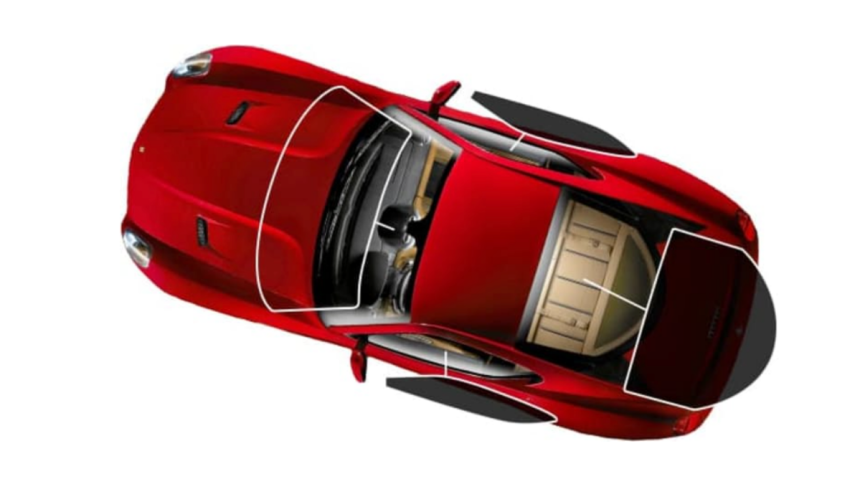Window tinting has become a popular choice for both vehicles and buildings, offering a range of benefits from increased privacy to aesthetic improvements. However, while many people appreciate the advantages of tinted windows, there are also potential downsides to consider. This article will delve into the pros and cons of window tinting, providing a comprehensive overview to help you make an informed decision.
Pros of Window Tinting
Enhanced Privacy
One of the most notable advantages of window tinting is the enhanced privacy it offers. Tinted windows make it difficult for outsiders to peer into your vehicle or home, thereby boosting personal security. Whether you’re parked in your car or relaxing at home, this added layer of privacy can deter potential thieves by concealing valuables and personal items. Moreover, increased privacy creates a more comfortable setting for occupants, reducing the feeling of exposure in both public and private environments.
UV Protection
Window tinting also offers substantial UV protection. Ultraviolet (UV) rays from the sun can cause skin damage and contribute to long-term health issues such as skin cancer. Moreover, UV rays can cause interior surfaces, such as upholstery and dashboard components, to fade and deteriorate over time. High-quality window tint films can block up to 99% of harmful UV rays, protecting both the people inside the vehicle or building and the interior surfaces from sun damage. This UV protection can extend the lifespan of your vehicle or home’s furnishings and reduce the risk of skin-related health problems.
Reduced Glare
Glare from the sun and headlights can be a significant distraction while driving, leading to eye strain and reduced driving comfort. Window tinting helps to reduce glare by filtering out harsh sunlight and bright headlights from other vehicles. This improved visibility can make driving more comfortable and safer, especially during bright, sunny days or at night. By decreasing glare, tinted windows can contribute to a more relaxed driving experience and help prevent potential accidents caused by visibility issues.
Temperature Regulation
Another advantage of window tinting is its impact on temperature regulation. Tinted windows can help to keep the interior of a vehicle or building cooler by blocking out a portion of the sun’s heat. This can reduce the need for air conditioning in hot weather and help to maintain a more comfortable temperature indoors. By lowering the amount of heat entering the space, window tinting can also contribute to energy savings and reduce cooling costs over time.
Aesthetic Appeal
Window tinting can enhance the overall appearance of a vehicle or building. With various tint levels and shades available, you can choose a style that complements your aesthetic preferences. Whether you’re looking to give your car a sleek, sophisticated look or add a modern touch to your home, window tinting offers customization options to suit your taste. The aesthetic improvements provided by tinted windows can also increase the curb appeal of your property, making it more attractive to potential buyers if you decide to sell in the future.
Increased Comfort
Tinted windows contribute to increased comfort by reducing the amount of heat and glare entering the interior space. This can lead to a more enjoyable driving experience and a more pleasant living environment. By mitigating the effects of direct sunlight, window tinting can help prevent discomfort caused by intense sun exposure and reduce eye strain. For individuals who are sensitive to light or have health conditions that are exacerbated by sunlight, window tinting can provide significant relief and enhance overall comfort.
Cons of Window Tinting
Legal Restrictions
One of the main drawbacks of window tinting is the legal restrictions that vary by location. Different states, countries, and municipalities have specific laws governing the allowable levels of tinting on vehicle windows or building glass. Failing to comply with these regulations can result in fines, penalties, or even having to remove the tint. It is crucial to research and understand the local laws before proceeding with window tinting to avoid any legal issues and ensure that the tinting meets the required standards.
Reduced Visibility
Window tinting offers enhanced privacy and reduced glare but can also affect visibility. Darker tints limit the light entering a vehicle or building, potentially causing visibility challenges, particularly at night or in low-light conditions. A personal injury lawyer in Lebanon, TN expressed that reduced visibility can affect safety by limiting peripheral vision and making it harder to spot potential hazards and a higher chance of getting in an accident. It’s essential to balance the level of tint with the need for clear visibility to ensure that safety is not compromised.
Cost Considerations
The cost of window tinting can be a significant factor for many people. Professional tinting services can range from moderate to high, depending on the quality of the tint film and the complexity of the installation. Additionally, there may be costs associated with removing or replacing the tint if it becomes damaged or if you decide to change the tinting later on. Considering the initial investment and potential future expenses is important when deciding whether window tinting is the right choice for you.
Maintenance and Durability
Window tinting requires proper maintenance to ensure its longevity and appearance. Over time, tint films may peel, bubble, or discolor due to exposure to sunlight, heat, or improper cleaning. Regular care and cleaning are necessary to maintain the tint’s effectiveness and visual appeal. If the tint becomes damaged or degraded, it may need to be replaced, which can add to the overall cost and effort involved in maintaining tinted windows.
Impact on Resale Value
Window tinting can potentially affect the resale value of a vehicle or property. While some buyers may appreciate the added privacy and aesthetic improvements, others may prefer a vehicle or property without tinting or have specific preferences regarding the tint level. It’s possible that tinted windows could limit the pool of potential buyers or lead to negotiations on the price. If you plan to sell your vehicle or property in the future, it’s important to consider how window tinting might influence the resale value.
To Tint or Not to Tint
Window tinting offers a range of benefits, including enhanced privacy, UV protection, reduced glare, temperature regulation, aesthetic appeal, and increased comfort. However, there are also potential downsides to consider, such as legal restrictions, reduced visibility, cost considerations, maintenance and durability issues, impact on resale value, and warranty concerns. By weighing these pros and cons, you can make an informed decision about whether window tinting is the right choice for you and your needs.
Lynn Martelli is an editor at Readability. She received her MFA in Creative Writing from Antioch University and has worked as an editor for over 10 years. Lynn has edited a wide variety of books, including fiction, non-fiction, memoirs, and more. In her free time, Lynn enjoys reading, writing, and spending time with her family and friends.















